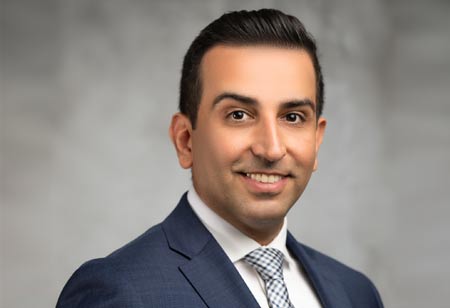Thank you for Subscribing to Healthcare Business Review Weekly Brief

Bridging the Gap: Supply Chain Talent in Healthcare
Healthcare Business Review
Behind the scenes, a complex web of operations is at work to ensure that medical supplies, equipment, and pharmaceuticals are readily available and operational for patient care. This complex system, known as the healthcare supply chain, has been facing significant challenges especially during and after the pandemic. The shortage of supply chain talent is at the top of the list! This challenge and the domino effect of it has significantly impacted health organization’s ability to support patient care. Do you remember the pandemic?
The shortage of supply chain talent in healthcare, is influenced by several contributory factors. One is the specialized nature of healthcare supply needs. Navigating the specialized requirements requires in-depth knowledge of regulations, precise product specifications, varying payer requirements and reimbursement, and the distinct requirements of patient care – no two patients are the same. Second, as we transition to non-clinical spend categories, a delicate balance is required to align procurement strategies with overall organizational goals while managing through inflation, labor shortages, and high interest rates. Third, supply chain management is not always seen as a glamorous career choice compared to more patient-facing roles, this can deter potential candidates, further widening the talent gap. Finally, the vendor landscape is also a challenge and healthcare vendors are not accustomed to dealing with strategic Supply Chains. That causes a frustrating process of establishing Supply Chain fundamentals that other industries addressed years ago. Given this complex landscape, recruiting individuals with the right expertise, and thought leadership becomes pivotal.
To bridge the gap in supply chain talent, several strategies can be employed:
1. Specialized Education Programs: To meet the unique demands of healthcare supply chains, educational institutions and healthcare organizations should collaborate to develop specialized education programs. These programs should provide a broad understanding of medical regulations, logistics, and other meaningful concepts of healthcare supply chain. By equipping students with the necessary knowledge, these programs can attract and nurture a new generation of supply chain professionals.
Navigating the specialized requirements requires in-depth knowledge of regulations, precise product specifications, varying payer requirements and reimbursement, and the distinct requirements of patient care – no two patients are the same.
Recognizing the critical need for developing future supply chain talent in healthcare, U.S. Renal Care has taken a proactive step by establishing a partnership with University of Texas at Dallas (UTD). Leveraging UTD’s senior capstone program, this collaboration aims to bridge the gap between theoretical learning and real-world application. Through joint supply chain projects, students gain firsthand exposure to the complexities of healthcare supply chain. By engaging themselves in these practical experiences, students grasp the complexities of learning and optimizing supply chain categories while witnessing the impact of efficient supply chain operations. This initiative not only enriches the learning journey of aspiring healthcare management students but also lays the groundwork for their potential career paths.
2. Cultivating a Dynamic Culture: As the healthcare industry evolves, a culture that encourages excellence, compassion, partnership, and diversity becomes an irresistible magnet for individuals seeking both personal fulfillment and the opportunity to contribute to transformative advancements. This dynamic culture not only resonates with current team members but also has the potential to attract top-tier talent, including those interested in supply chain roles.
3. Adaptation to Technological Advances: Embracing technology can significantly alleviate the strain on supply chain professionals in healthcare. Implementing advanced analytics, artificial intelligence, and automation can streamline supply chain processes, reducing the burden on human resources and attracting tech-savvy individuals to the field. This may sound commonplace in other industries, but healthcare needs significant attention in this area.
4. Clinic Engagement: Key to Supply Chain Success: In healthcare organizations, the success of supply chain programs relies on clinics' active participation. When clinics wholeheartedly adopt supply chain initiatives, efficiency soars and the impact resonates throughout the organization. Conversely, lack of clinic engagement and leadership support can lead to program failure and talent burnout.
The shortage of supply chain talent in healthcare is a challenge that requires immediate attention. By developing specialized education programs, promoting the significance of supply chain roles, exhibiting an inclusive culture, embracing technology, and preparing for global crises, the healthcare industry can address the shortage and ensure a seamless flow of critical resources to patient care.









